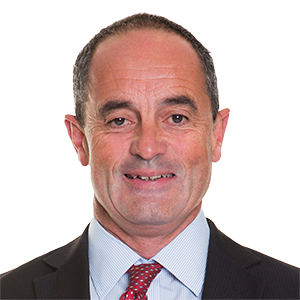The Department of Transport has promulgated a notice calling on parties to make submissions by 28 September 2023 on the proposed amendments to the National Ports Act (NPA). Certain of these amendments mark a fundamental shift from the amendments proposed in 2018. Those shifts take place against a background of the corporatisation of various Transnet entities in an attempt to improve competition and to propose changes to the ports’ regulatory environment. Many of the changes are designed to align the NPA with various policies and other draft legislation making their way through the consultation and parliamentary process. Other changes however raise significant problems from an economic, regulatory and development perspective. Those involved in the port sector are urged to consider how the proposed amendments will affect their business, submit comments and to then engage robustly with government.
As in any democracy, it is the government of the day that sets the economic and legal policies that shape various sectors and this note is not designed to comment on the underlying principles behind those polices but it raises some real concerns around the legal effects of the proposed amendments.
The original NPA came into effect at a time when TNPA, as a division of Transnet, held an absolute monopoly over all of the ports and the NPA was designed to regulate the functioning and liability of TNPA and create a regulator that could deal with the private sector and public bodies’ interaction with TNPA. It was also designed to deal with TNPA’s tariffs in a manner which would ultimately make TNPA more competitive. The political and economic environment has changed drastically since then with government recognition that State Owned Entities (SOEs) need to become more efficient and competitive and that the private sector needs to be allowed access to the critical services provided by SOEs such as Transnet. This is seen in the commitment to corporatise various divisions within Transnet such as setting up two separate companies to provide rail infrastructure and provide rail services. It is also seen in the long delayed corporatisation of TNPA as the body responsible for all of South Africa’s ports. Both of these should allow the private sector to compete with the new government entities in the provision of rail and port services. It seems probable that vested interests within government and Transnet are resistant to these changes because it diminishes their access to and control of lucrative industries. Government has however made it clear through recent policies and public statements that it is enhancing South Africa’s competitiveness to raise our ports from the bottom of global rankings.
Some of the proposed amendments will need to be reviewed by DoT, particularly in the definitions section. Some definitions are redundant as the terms are not used anywhere and there are a number of missing definitions that are important. The latter includes the absence of a definition for “Cargo”, “Port Facility” and “Port User”. The former includes the new definition of “Harbour” which is not used anywhere else in the NPA and in any event is confined to commercial export activities only and does not include import activities. The revised definition of “Port” includes new words relating to a “harbour” which are defined elsewhere and accordingly not needed.
Other problematic definitions include “coastal shipping services”, which seem to be a type of cabotage and refers to goods being transported from port to port along the South African coast by small vessels. The phrase is not defined and it is not clear whether this refers to cargo ships only or any small vessel for which a definition can be found in the old Merchant Shipping Act and the Ship Registration Act.
The new definition of “Strategic Infrastructure” refers not only to port infrastructure, but to all rail and road access to a port which would cover any road or rail link to a port and extend the new proposed port authorities’ mandate to cover road and rail links to ports.
Another problem arises in respect of “Terminal Infrastructure” which includes every railway line and siding in the country and not just those within ports. These definitions are relatively easily dealt with by removing redundancies and aligning definitions across the various Acts.
The current and proposed NPA will only cover existing ports. The effect is that if a new port is to be developed (such as Ngqura was and as is contemplated at Boogoebai), the Minister does not have the power to declare that facility a port in order to develop it as a new port. It is necessary to pass a dedicated Act through parliament in order to develop a new port. The authority to declare new ports should be devolved on the Minister in order to avoid the many years of delay required to currently get new legislation through parliament. The proposed amendment says that proper procedure must be followed, but has removed the specific obligation to consult the municipalities involved.
At present, the Ports Regulator exercises control over the functioning and activities of TNPA. This includes the power of the Ports Regulator to hear complaints and appeals against decisions of TNPA which is a process used often by port users when denied access to port facilities or the opportunity to build private terminals. The Ports Regulator exercises control over the tariff charged by TNPA using a consultation and assessment process. The entire chapter dealing with the Ports Regulator is to be deleted. It is contemplated that the new Economic Transport Regulator will then exercise control over the new Port Authority of South Africa. This Regulator has not yet been formed and the legislation dealing with its creation is still working its way through the consultation process. That Regulator will however be limited to exercising authority over economic issues which are mainly the tariffs. It will not have a mechanism or authority to hear appeals or complaints and it should.
In addition, the Ports Regulator previously exercised control over TNPA’s tariffs and TNPA regulated private port users and tariff issues. Having the TNPA regulating itself and private users, subject to the Economic Transport Regulator’s oversight on tariffs is clearly a conflict of interest.
Section 79 of the existing Act empowers the Minister to instruct TNPA to comply with its own procedures. It has, up until now, been used by the Minister to effectively allow port operations such as the Karpowerships project to proceed without following the required licensing procedure out in section 56 and 57. This is wrong as it should only allow the Minister to direct the TNPA to consider applications by the likes of Karpowerships for a licence. The problem has been exacerbated by the proposed amendments which propose to delete the requirement that the Minister can only act in limited circumstances relating to national strategy or international obligations. The proposed amendments allow the Minister to issue directions with no need for exceptional circumstances.
The move towards corporatisation, partial privatisation and increased competition is very welcome, but the proposed amendments to the NPA have to be addressed by port users to ensure that competitiveness is increased and proper administrative steps are possible to challenge bad, or no, decisions of the authorities. We are of the view that port users and industry bodies need to urgently engage with DoT to ensure that the new NPA returns South Africa to its place as the pre-eminent gateway into Africa. This is particularly sos given the opportunities that the AfCFTA will offer to those in the ports and logistics industries.





